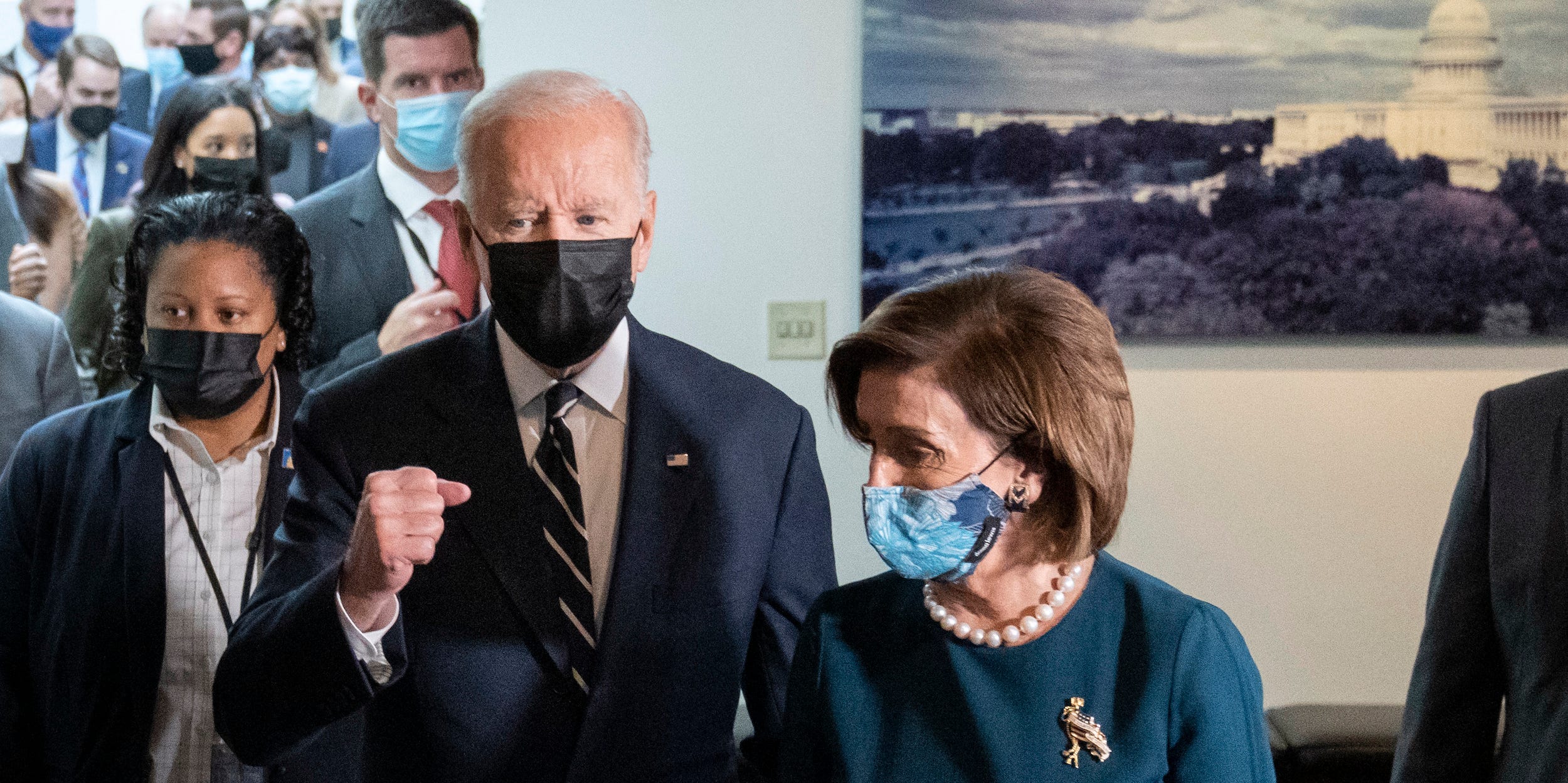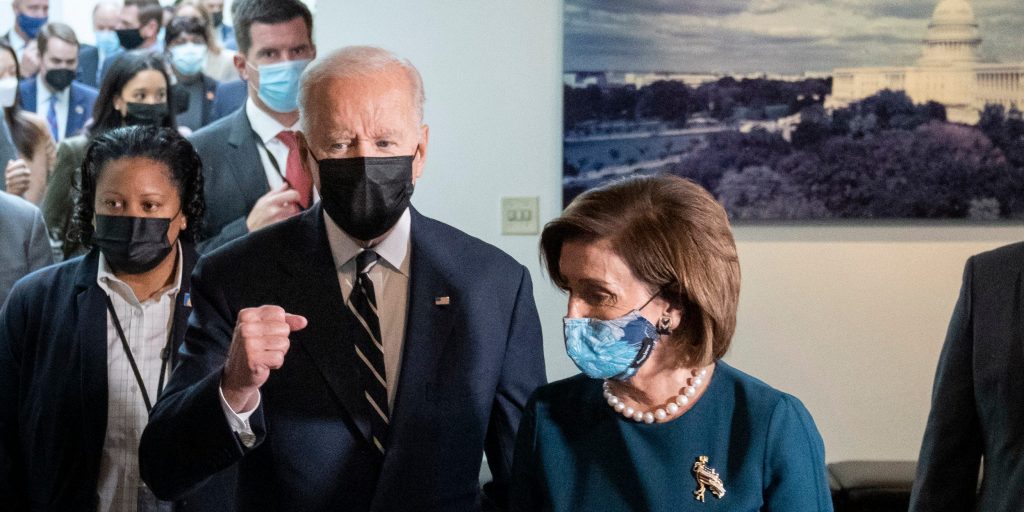
Drew Angerer/Getty Images
- Democrats are racing to pass Biden's economic agenda in the wake of stinging losses in Virginia.
- "We got majorities in both houses, so people want us to deliver," Sen. Tim Kaine of Virginia told Insider.
- Republicans say they're drawing lessons from the Virginia governor's race to wield against Democrats next year.
A fresh sense of urgency swept Democrats on Capitol Hill a day after the party suffered a major electoral defeat in Virginia.
In the wake of a Democrat losing the Virginia governor's race, the party is scrambling to wrap up negotiations that have bogged down passage of a social spending bill for months due to ongoing discord over its size and scope. President Joe Biden unveiled a new $1.75 trillion framework last week, but it crashed into resistance from Sen. Joe Manchin of West Virginia, a key swing vote that Democrats cannot lose.
With Democrats controlling both chambers of Congress and the White House for the first time in over a decade, they've been seeking to implement new social safety net programs along with measures to transition the US onto greener energy sources and combat the climate emergency.
"We got majorities in both houses, so people want us to deliver," Sen. Tim Kaine of Virginia told Insider. "And everybody was holding out for their little thing – whatever it was – instead of acting."
"We blew the timing," Kaine said.
"I am going to say that we've had for over two months a broadly popular legislative achievement that somehow people thought delaying would be helpful," Sen. Mark Warner of Virginia told Insider. "Only in DC would that strategy pass any kind of smell test."
Since the summer, progressives have blockaded passage of a $550 billion infrastructure bill focused on roads and bridges until Senate Democrats pass the broader social spending bill. They rejected the premise on Wednesday that they had caused the party's stinging loss in Virginia.
"There is no way that you can say that a 12-point swing in a state is due to Congress not passing one bill," Rep. Pramila Jayapal, chair of the Congressional Progressive Caucus, told reporters on Wednesday.
Some Democratic aides pointed the finger instead at Manchin and Sinema for dragging out negotiations on a bill containing popular provisions like a Medicaid expansion, federal prescription drug price controls, and tax hikes on the rich. "For sure," one Senate Democratic aide granted anonymity to speak candidly told Insider. "If it was up to 90% of the caucus, this bill would have been done a long time ago."
Senate Democrats rejected the notion that the centrist holdouts were to blame. "I think they've been working to try to make it better, make it work for American families" Sen. Jon Tester of Montana said of the pair of holdouts. "Do the kind of things we need to do."
A crucial November
Democrats are redoubling efforts to pass the bill over the next few weeks. "I think it makes it more likely to be passed because we know we've got to get this done and start talking about how we've cut costs for families and give them the biggest the biggest tax cut ever. I think this really compels us even more to move," Sen. Sherrod Brown of Ohio said.
This week, House Democrats readied a fresh 2,135-page legislative proposal in a bid for the plan to clear the chamber, but it still faces resistance in the Senate from Manchin. He read the Virginia election very differently compared to the rest of the party.
He's long urged Democrats to slow down passage of the social and climate bill and said the election only made him dig in further. "What we should do is explain to the people what we're doing and make sure we do it right and take the time to do it right," he told Insider.
In Virginia, GOP candidate Glenn Youngkin defeated Democratic contender Terry McAuliffe in the race for the governor's mansion. Republicans say they're drawing lessons for the race and starting to map out a playbook focused on education and economic issues to put Democrats on their heels and recapture both the House and Senate in the 2022 midterms.
"You look at whether it's the border, whether supply problems, whether it's inflation, whether its gas prices up, whether it's Afghanistan," Sen. Rick Scott of Florida, head of the Senate GOP's fundraising arm, told Insider. "They have no plans. The American public is not going to stand for this."
"I think it's gonna be a wave election for us," Scott said in a brief interview.
The governing party typically suffers bruising losses in their first midterms. House Minority Leader Kevin McCarthy boldly predicted on Wednesday that Democrats could lose more than 63 seats in the lower chamber. It's the same amount of losses Democrats suffered in the 2010 midterms which ushered in the conservative Tea Party movement.
But not every Democrat believed they were destined to repeat history.
"I would caution people against overinterpreting them for the 2022 races," Sen. Chris Van Hollen of Maryland said. "I know we go through this, no matter who wins in Virginia. It's always spun that way."

